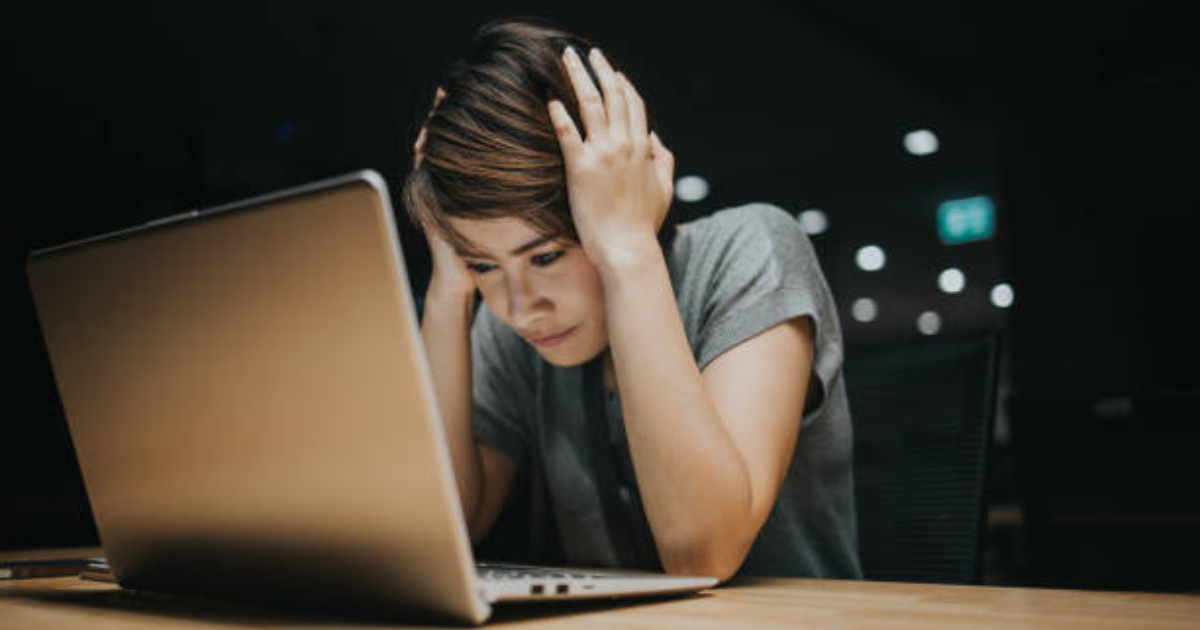Free-Floating Anxiety and What It Means

Free-floating anxiety is connected to fear and the activation of the body’s fight-or-flight response. Fear is actually a normal and beneficial response. This is because it is a biological process that allows you to quickly respond to potential threats. Without fear and anxiety, you may be more susceptible to dangerous situations and have difficulty reacting promptly to them.
Anxiety disorder may be diagnosed when fear becomes excessive, persistent, and distressing and is not proportionate to the perceived threat. If you experience anxiety even in the absence of any identifiable danger, this is known as “free-floating anxiety.” This type of anxiety seems to happen without a specific trigger.
What is free-floating anxiety?
Free-floating anxiety refers to anxiety that does not have a clear source or trigger. People who suffer from Generalized Anxiety Disorder (GAD) often experience this type of anxiety, which seems to come and go randomly without any identifiable cause.
While free-floating anxiety and GAD share some similar symptoms, there are also some key differences between the two. To be diagnosed with GAD, a person must experience excessive worry for a period of at least six months. There is no set duration for free-floating anxiety. Additionally, the anxiety must cause significant impairment in daily life, such as at work, school, or personal relationships, and result in negative health consequences.
Free-floating anxiety is often a hallmark of GAD. However, simply experiencing free-floating anxiety does not automatically indicate that a person has an anxiety disorder. Further evaluation and assessment by a mental health professional are necessary to make an accurate diagnosis.
What are the symptoms of free-floating anxiety?
Free-floating anxiety can manifest differently for each person, but it often involves feelings of unease, worry, and stress without a clear source. These symptoms can vary in intensity and length and can arise unexpectedly. Although anyone can be affected by free-floating anxiety, it is more prevalent in individuals with a history of anxiety disorders. Some common signs of free-floating anxiety include:
- Panic
- Trouble concentrating
- Restlessness
- Increased heart rate or heart palpitations
- Sweating
- Racing or negative thoughts
- Nightmares
- Worry
- Nervousness
- Muscle tightness
What causes free-floating anxiety?
Experts do not fully understand the exact causes of free-floating anxiety and generalized anxiety disorder. They believe that both genetics and environmental factors play a role. A person’s genes and biology interact with their upbringing and life experiences to contribute to the development of anxiety disorders. For instance, someone with a genetic vulnerability to anxiety may develop generalized anxiety disorder due to repeated traumatic events during their childhood.
The following are some factors that may contribute to or cause free-floating anxiety.
Genetics
Anxiety disorders can be hereditary, and some studies indicate that children have a seven-fold higher likelihood of developing anxiety if a parent has it. This does not imply that family members directly cause anxiety, but rather that mental health symptoms can be passed down through generations.
Trauma
Traumatic and difficult life events can also trigger the onset of anxiety. Such events could include bullying or abuse, low self-esteem, loss or grief, or a challenging childhood. These experiences can interact with other factors such as behavioral learning, coping mechanisms, parenting, and reinforcement, which can increase one’s susceptibility to anxiety.
Stress
Stress and anxiety are closely linked. When a person experiences stress, their body releases the hormone cortisol into the bloodstream. Cortisol has various functions, including increasing heart rate and reducing appetite, to prepare the body for potential danger.
In the short-term, stress results in increased alertness and attentiveness. However, long-term stress can lead to an accumulation of cortisol, making it difficult to remain calm. The same is true for free-floating anxiety. The higher one’s stress levels, the more likely they are to experience episodes of free-floating anxiety.
Lifestyle
Both diet and exercise can cause anxiety in some people. While dietary factors are less commonly associated with anxiety, low levels of vitamins such as magnesium and dehydration have been linked to increased anxiety symptoms. Exercise, on the other hand, has a well-established connection to anxiety. Without proper exercise, the body’s surplus energy and stress hormones can become imbalanced, leading to physical stress and anxiety disorders.
What are the treatments for free-floating anxiety?

Although dealing with anxiety can be challenging, it is treatable. In some instances, making improvements to self-care habits, modifying lifestyle choices, or utilizing effective coping strategies can produce significant improvement. However, if the symptoms persist or worsen, seeking professional treatment for anxiety can help restore a sense of control in one’s life.
Cognitive Behavioral Therapy
Cognitive-behavioral therapy (CBT) is a highly effective method for reducing anxiety. CBT helps individuals change harmful thought patterns that contribute to anxiety. It has received extensive research, and psychologists have found effective techniques for treating generalized anxiety disorder using the techniques advocated by CBT practitioners.
Medications for Free-Floating Anxiety
Anti-anxiety medication can decrease the severity of anxiety symptoms, especially when combined with therapy and other behavioral changes. Remember that only qualified medical professionals such as a doctor, psychiatrist, nurse practitioner, and some licensed psychologists can prescribe psychiatric medication.
Exercise
Exercise is a highly beneficial tool for managing anxiety. Physical activity releases neurotransmitters that promote a calm mood, burns off excess energy, and releases stress hormones. It also helps regulate hormones and tire muscles to create a greater sense of relaxation.
Relaxation Techniques
Discovering methods to reduce anxiety levels can make it easier to handle stress and worry. Techniques such as meditation, mindfulness, deep breathing, and visualization can assist in diverting attention from worries and decreasing overall stress levels.
When should you seek professional help?
If your anxiety is starting to disrupt your daily life, it may be wise to seek professional help and determine if you have a more serious anxiety condition like generalized anxiety disorder.
Although there are no specific treatments or medications for free-floating anxiety, a diagnosis of generalized anxiety disorder may make you eligible for an anti-anxiety medication or SSRI prescription. If you are looking for therapies that will help you manage your anxiety, visit Mindshift Psychological Services. We offer treatment programs for depression and anxiety. Check out our website to learn more about us or contact us at (714) 584-9700 to schedule an appointment.



